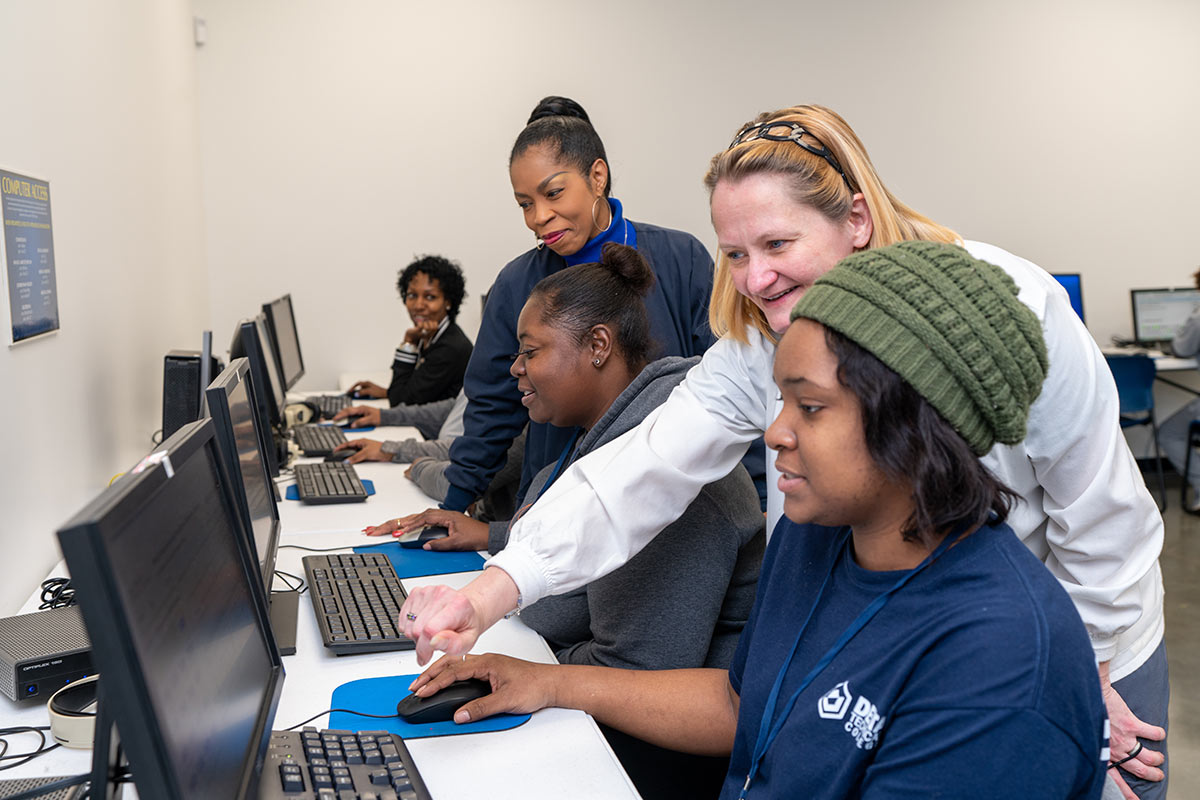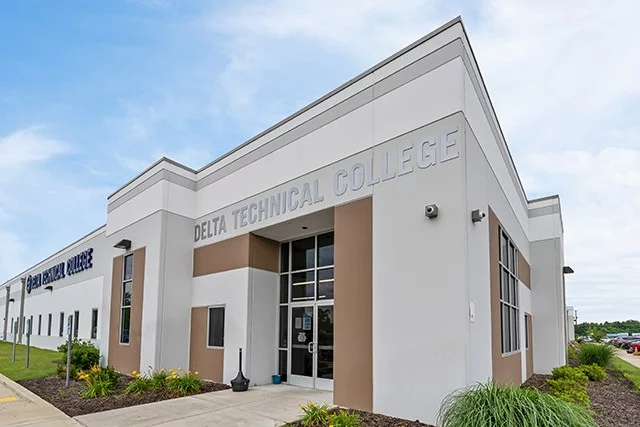Ready to Learn More?
DTC is Here to Help
DTC’s Admissions Team will reach out to answer any questions you have and share next steps!
What Makes the Medical Coding Specialist Program at DTC Different?
Hands-On Focused
Receive hands-on training in classrooms & computer labs that simulate medical coding work environments
Accelerated Training
Earn your Medical Coding diploma in as few as 9 months
Experienced Instructors
All DTC medical coding instructors have real-world experience
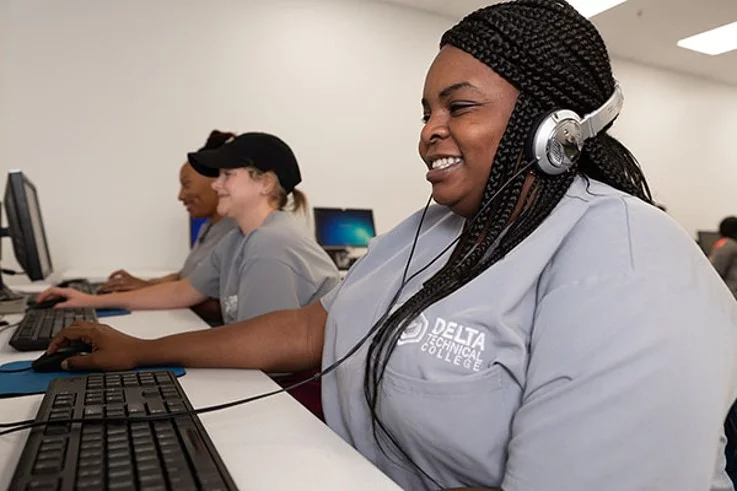
Evening Classes Available
Flexible class times that work for your busy schedule
Employment Preparation
No general education courses required, students will learn the skills required for entry-level employment
Career Placement
Career counseling & placement assistance is available to all qualified graduates
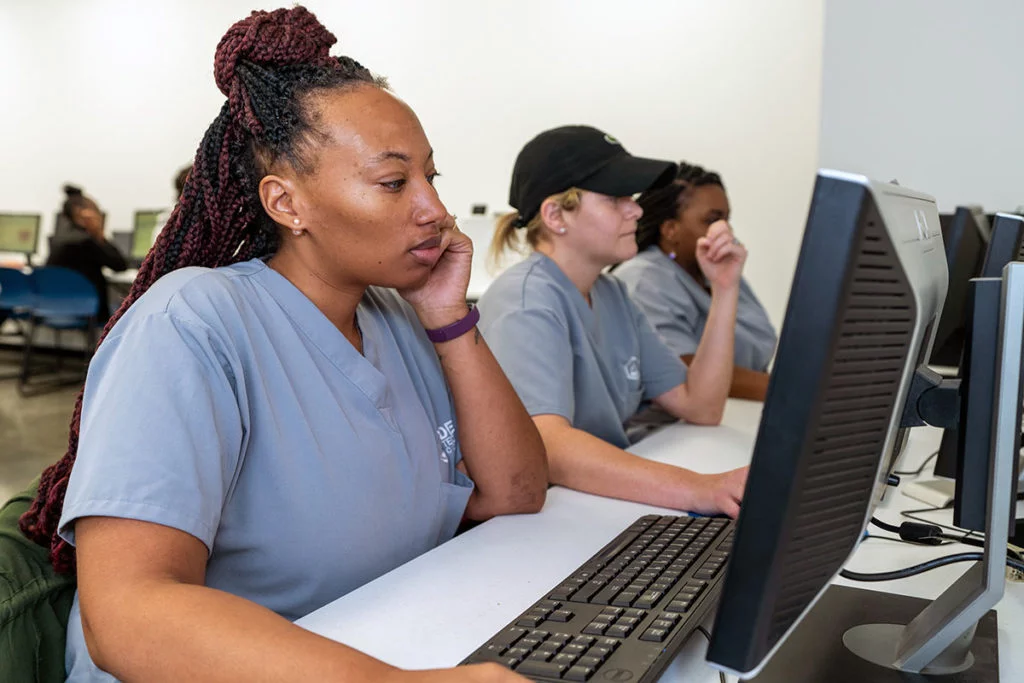
The School of Medical Coding at Delta Technical College
Medical coding training offers instruction on the skills and tasks required to be a medical coder, from the analysis of medical records to understanding diseases that affect the human body. Students will experience medical coding training in an assortment of ways, including workbook pages, case studies, role play, daily exercises, and more. The medical coding specialist classes and externship at DTC offer training from experienced professionals that can prepare graduates for entry-level jobs after graduation. When students complete the Medical Coding Specialist Program at DTC they can sit for the Certified Professional Coder (CPC) Exam in order to earn medical coding certification.
HANDS-ON MEDICAL CODING SPECIALIST TRAINING CLASSES
CPT & Modifiers | Office Skills & Coding | Administration & Coding | Insurance Guidelines & Coding | Insurance Claims & Coding | Employment Prep and Certification & Externship
The Medical Coding Specialist Program instructors will use their expertise and in-the-field experience to train students on the analysis of medical records, charts, and other documents. Upon completion of the medical coding training, graduates should be able to perform the following tasks:
- Translate doctors’ notes and other documentation into numerical descriptions of illnesses and treatments
- Index diagnoses and procedures to provide information for reimbursement purposes
- Locate crucial information within medical records to provide precise coding
Delta Tech’s Medical Coding Specialist curriculum incorporates lessons about anatomy, medical terminology, etiology, pathology, and the symptoms and signs of various diseases.
For medical coding certification, students can sit for the Certified Professional Coder (CPC) Exam that is administered by the American Academy of Professional Coders (AAPC) upon graduation from the Medical Coding Specialist Program.
*Modules can be taken in any order; however, Medical Coding Externship will always be taken last by the student.
Ready to Learn More?
Ready to learn more about DTC’s hands-on training programs? Give us a call or fill out the form to get more information.
Financial Assistance

DTC’s Financial Aid Team provides personalized support to students applying for federal financial aid and help with understanding all the funding options, including scholarship opportunities.
Scholarship Opportunities

DTC is here to help you attain the funding you need to take the next step in your education. DTC’s Financial Aid Team can help match you with scholarship opportunities you may qualify for.
Medical Coding Careers
Medical coding may be the right choice for someone interested in an allied health career that doesn’t require patient contact. Typical job titles include: Medical coding specialist, insurance coder, claims specialist, and medical coder.
Medical coders aid the healthcare and medical industries by translating important procedures and diseases into universal code that is used by the Center for Disease Control and medical offices around the nation. Accuracy and attention to detail are essential skills for medical coders and can contribute to a successful career.
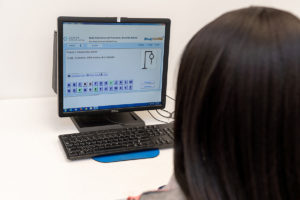
Although medical coders typically work in doctors’ offices and hospitals, many medical coders may eventually choose to work out of their homes. Medical coding remote positions typically require several years of professional coding experience.
The Bureau of Labor Statistics predicts the job outlook for medical coders will increase by 7% from 2021 to 2031, which is faster than the average occupation growth rate of 5%. *www.bls.gov
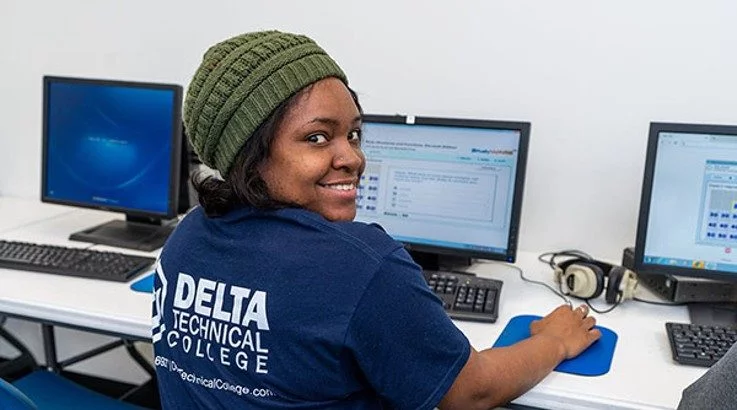
Ready to Learn More?
Ready to learn more about DTC’s hands-on training programs? Give us a call or fill out the form to get more information.
Get StartedFind Medical Coding Specialist Classes Near You
Medical Coding Specialist Program Overview
QUICK FACTS: MEDICAL CODING SPECIALIST PROGRAM
Medical coders review patient information so the patient data can be coded properly. Medical coders transcribe doctors’ medical notes into universal code, which describes illnesses and procedures. Examples of common careers include: medical coding specialist, insurance coder, claims specialist and international classification of diseases/CPT coder.
HOW MUCH DO MEDICAL CODERS MAKE?
According to the U.S. Bureau of Labor Statistics, the median annual wage for medical records and health information technicians was $47,180 in May 2022. Most medical coders work full-time, and many have the opportunity to earn extra income by taking on evening and overnight shifts.
WHERE CAN I WORK AS A MEDICAL CODER?
Medical coding specialists can seek employment in hospitals (state, local, and private), offices of physicians, administrative and support offices, nursing care facilities, and professional, scientific, and technical services. Most working environments are comfortable for medical coders and include indoor offices.
The Medical Coding Specialist Program at Delta Tech prepares students for entry-level positions that may be found in medical offices, clinics, hospitals, and insurance companies.
As the medical industry grows, medical coders are increasingly in demand. BLS projects the employment of medical records and health information technicians to grow 8% between 2022 and 2032, which is faster than the average of all other occupations (3%).
HOW MUCH DOES MEDICAL CODING TRAINING COST?
For more information on DTC program costs, please contact Financial Aid or visit Tuition & Cost.
Check out the Medical Coding FAQ for the answers to frequently asked questions about medical billers and coders!
Enrollment & Outcomes
Enrollment and outcome information for all Mississippi-based campuses and the ACCSC annual reports for each program in Adobe PDF format. Please note, all programs are not offered at all campuses. For annual details, please visit our Medical Coding enrollment and outcomes page.
Accreditations
- DTC is accredited by the Accrediting Commission of Career Schools & Colleges (ACCSC).
- DTC is approved by the U.S. Department of Education to participate in federally-funded financial aid programs.

Delta Technical College is licensed by the Mississippi Commission on Proprietary Schools and College Registration, Certificate No. C-624. Licensure indicates only that minimum standards have been met; it is not an endorsement or guarantee of quality. Delta Technical College is authorized for operation as a postsecondary educational institution by the Tennessee Higher Education Commission.
Licensure indicates only that minimum standards have been met; it is not an endorsement or guarantee of quality.
Delta Technical College is authorized for operation as a postsecondary educational institution by the Tennessee Higher Education Commission.
